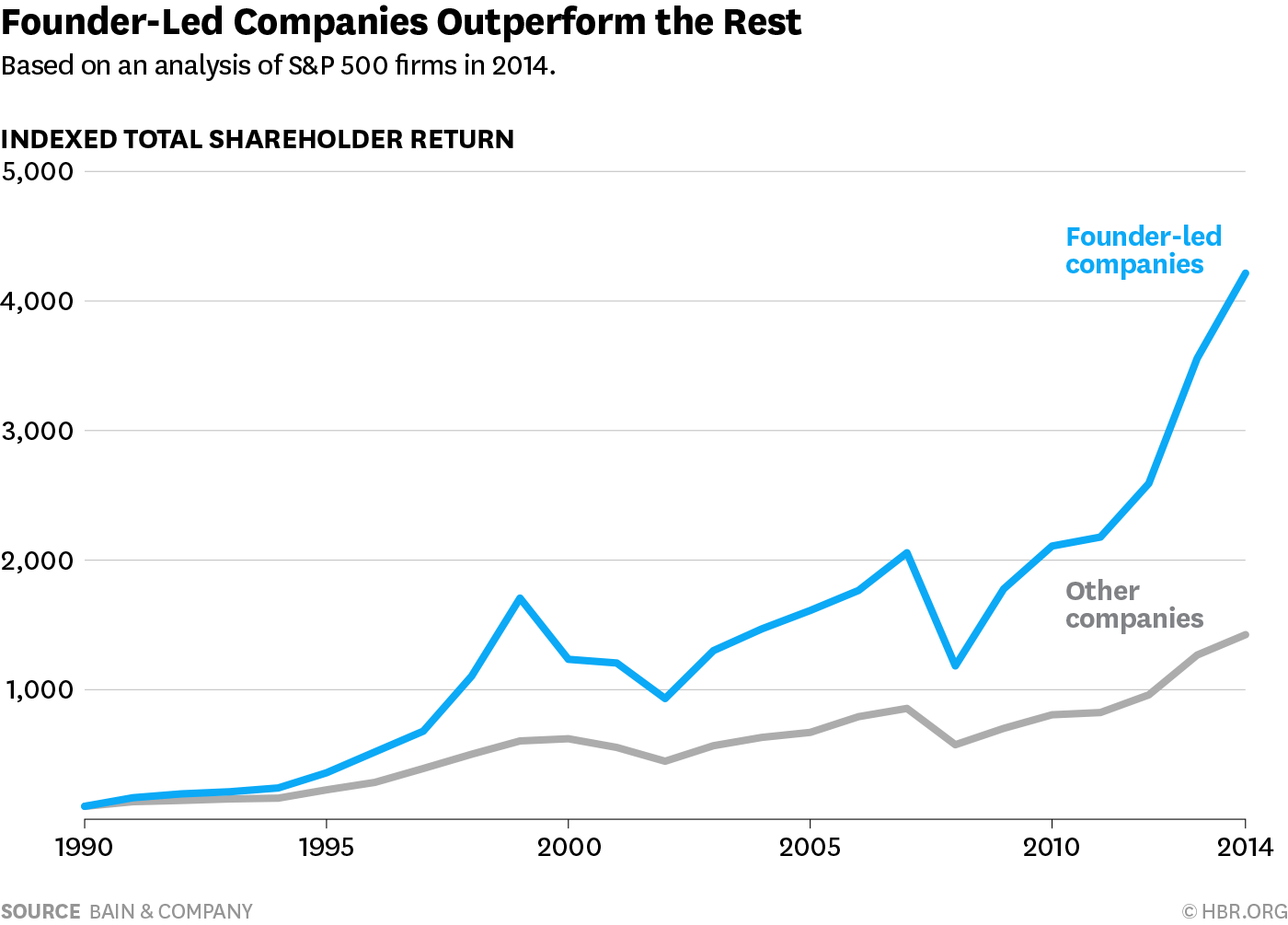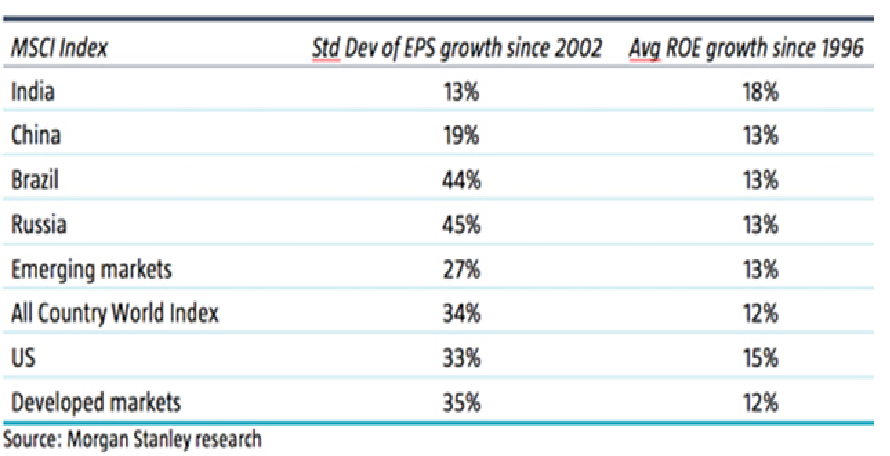The Founder or CEO, who creates more shareholder wealth?
Travis Kalanick, co-founder of Uber Technologies took the decision to step down despite many commending him for ignoring typical corporate management convention. However, investors were unhappy and subsequently pressured him to resign. So as a shareholder, in any business, who would you prefer, the Founder or CEO?
Corporate management is often incentivised to make shorter-term decisions. They are commonly paid in terms of stock options that vest over a short-term period of 1-3 years and cash bonuses for yearly performance. In the case of founding management, there is naturally a longer term view taken as their company was built through hard work, passion and drive to create something significant. They instinctively know all facets of the business and are looking to innovate, make bolder and more strategic investments and maintain more loyal employees.
Chris Zook, partner at Bain & Company’s Boston office wrote a piece in the Harvard Business Review titled “Founder-Led Companies Outperform the Rest — Here’s why”. He and his team at Bain & Company have been studying publicly listed companies globally over the last 25 years in an attempt to identify companies that manage to generate sustainable long-term earnings growth. What they found was that sustainable profitable growth is very challenging and that currently only 1 in 10 companies have been able to achieve this feat over a decade.
Interestingly though, when they tracked this globally, a disproportionate amount of companies that met this criterion still had the founder either running the business, involved with the Board of Directors or where the focus and principles used by the founder/s were still in place. After interviewing over 200 founder lead companies, Chris and his team identified three characteristics and underlying attitudes that emerged consistently. They coined this phenomenon “the founder’s mentality” which displayed the following characteristics:
- Business insurgency - Sharp sense of purpose. Without this the business lacks direction and is uninspiring. According to Bain & Company, 13% of employees worldwide are disengaged. Engaged employees are 3.5 times more likely to engage personal time to innovate compared to unengaged workers.
- Front-line obsession – The deep understanding of the product/service and the love of detail and curiosity at the front line. These companies are likely to remain in touch with their customers and bureaucracy is less likely to take over.
- Owner’s Mindset – Take personal responsibility for risk and costs. The company thinks like an owner would. Less complacency, not as slow to act and less risk averse, whilst employing a long-term mindset.
A great example is Facebook’s founding CEO Mark Zuckerberg. He made a series of long-term strategic decisions and avoided taking any revenue that went contrary to improving the user’s experience. However, by committing to this vision, he was heavily scrutinised in the short-term by the press and investors. Would a professional CEO have taken these risks and endured such vicious attacks for unproven, long-term benefits? The chart below compares the stock performance of founder lead companies relative to others over the last 24 years. Interestingly, the outperformance of such companies is substantial.

So does this mean all founders are CEO material and destined to succeed? Unfortunately, it is not as simple as that. Managing a successful company requires a tremendous amount of ability as well as the right products/services for the ecosystem the company operates in. Whilst nearly all founders exhibit this mentality, not all of them have the skill to successfully implement it. Selecting companies for investment requires a deep understanding of not only the founder’s mentality, but also their past track record of implementation, strategic thought process/creativity and internal motivations, which are all paramount to generating strong returns.
For example, India’s equity market is dominated by companies where the founder is still heavily involved in the business. In fact, approximately 45% of the market today is owned by founders of the business. We feel this high level of ownership is the major reason why India enjoys the highest rates of return on equity in the world and has exhibited sustainable earnings growth of 14% p.a., with very low volatility, over the last 15 years.

One example of this is Sun Pharmaceutical Industries, India’s largest pharmaceutical company. Sun Pharma's founder, Dilip Shanghvi certainly exhibits the “founder’s mentality”. In fact, he has often been described as a “hands-on manager” who believes in rolling up his sleeves and doing things himself.
From a start-up 30 years ago, selling niche products, it is now the world's fifth largest generic pharmaceuticals company. However, such success was not handed to him and his company on a platter. In the 1980’s and 1990’s, the large Indian pharmaceuticals were taking on multinational drug makers in established categories as this is where most of the revenues were being made. Dilip Shanghvi decided to ignore this and focus on the long-term and untapped opportunity of niche generic drugs that targeted chronic therapies for ailments in areas such as psychiatry, cardiovascular, neurology and oncology etc. Mr Shanghvi was not bothered about the immediate size of the market, but rather on the long-term potential from both urbanisation in India and aging globally would result in an increase in diseases. Whilst the revenue opportunity was small to begin with, less competition translated into higher margins that provided the resources to reinvest in the business and grow it to the company it is today.
Whilst conventional wisdom says the founding CEO should make way for a professional and experienced CEO once the company has achieved scale, this ignores the benefits of comprehensive knowledge, moral obligation to make the hard decisions to ensure business continuity and total commitment to the long-term. We feel active management is required to identify founder lead companies with the ability, track record and right mentality. This is likely to generate outsized returns for investors in any market, not only India’s.
5 topics

